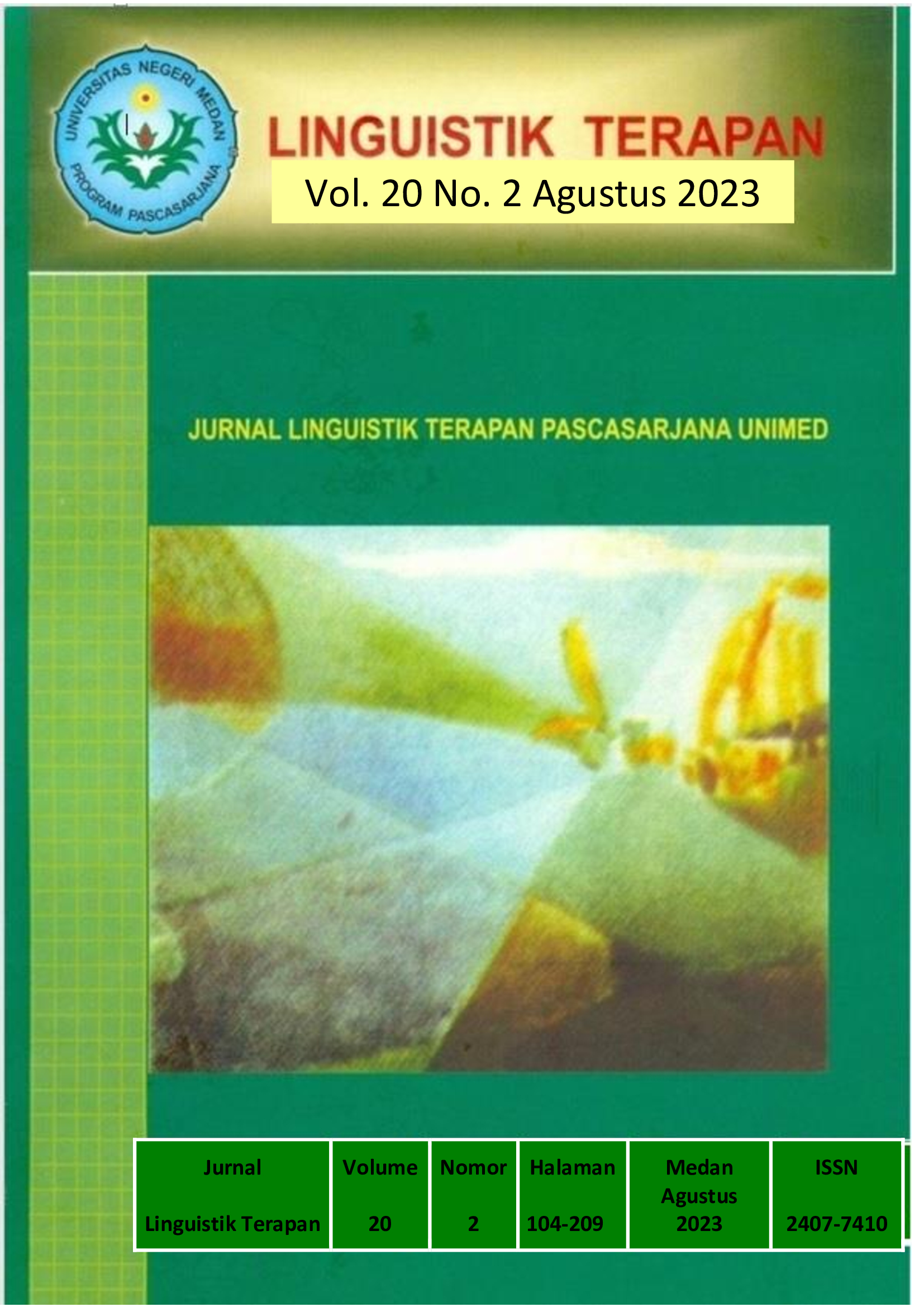REASON WHY XENOPHOBIA REALIZED IN THE SQUID GAME SERIES: A CRITICAL DISCOURSE ANALYSIS
DOI:
https://doi.org/10.24114/lt.v20i2.52353Keywords:
Xenophobia, Van Dijk, Social Context, Social Cognition, Critical Disourse AnalysisAbstract
Frequent verbal assaults against immigrants or even physical attacks on outsiders result from intolerance. Experience prejudice and social exclusion due to their foreign backgrounds is inevitable. The study seeks to analyze this portrayal of xenophobia and explore the factors contributing to it. The research conducted explores the origins of xenophobia depicted in Netflix's series, The Squid Game. Utilizing a descriptive qualitative approach, the study delves into the reasons behind the xenophobic attitudes portrayed by the characters. The result showed that due to powerless and statelessness, the immigrants felt the prejudice from the natives. The data, extracted from episodes 1 to 6, focuses on the discrimination faced by immigrant characters within the series. By employing Van Dijk's (2008) theory to analyze the xenophobia, and the analysis integrates aspects of social cognition and context. This framework allows for a comprehensive understanding of the social factors contributing to xenophobia, emphasizing the characters' perspectives and societal context depicted in the show.References
Armstrong, C. (2010). The Destruction and Reconstruction of North Korea, 1950 - 1960. Asia-Pacific Journal: Japan Focus.
Ary, D., L. C. Jacobs., C. Sorensen. (2010). Introduction to Research in Education. 8th Edition. Wadsworth: Cengage Learning.
Augoustinos, M., I. Walker. (1998). The Construction of Stereotypes within Social Psychology: From Social Cognition to Ideology. Theory & Psychology. 8. 629-652. 10.1177/0959354398085003.
BaÅŸak, B., M. Aydin. (2019). Problematic Internet Use in Terms of the Purposes of Internet Use, Irrational Beliefs, Feelings of Inferiority, and Gender. Addicta: The Turkish Journal on Addictions. 10.15805/addicta.2019.6.3.0017.
Brown, L., N, Iwasaki. (2015). Implementing Multiliteracies in the Korean Classroom through Visual Media. In Multiliteracies in World Language Education (pp. 176-199). New York. Routledge.
Choane, M., S. L. Sulika. (2011). An Analysis of the Causes, Effects and Ramifications of Xenophobia in South Africa, Insight on Africa, , vol. 3 (2), pages 129-142, July.
Crush, J., S, Ramachandran. (2010). Xenophobia, International Migration and Development. Journal of Human Development and Capabilities. 11. 209-228. 10.1080/19452821003677327.
Dodson, M. (2010). The Dispossession of Indigenous People: and its consequences, Parity: Council to Homeless Persons, vol. 23, no. 9, pp. 6-7.
Essed, P. (1991) Understanding Everyday Racism: An Interdisciplinary Theory. Newbury Park. Sage Publications.
Fafiyebi, D. (2020). A Critical Discourse Analysis of Selected Utterances of State Actors on the 2019 Xenophobic Attacks on Nigerians in South Africa. Journal of Language and Literature. 20. 199. 10.24071/joll.v20i2.2394.
Kang, J. and K. Hwang. (2022) Belonging Otherwise: Chinese undergraduate students at South Korean Universities. Globalisation, Societies and Education 0:0, pages 1-14.
Kim, D.H., R. R. Sundstrom. (2014). Xenophobia and Racism. Critical Philosophy of Race, 2, 20 - 45.
Kinginger, C. (2008). Language Learning in Study Abroad: Case Studies of Americans in France. The Modern Language Journal. 92. 1 - 124. 10.1111/j.1540-4781.2008.00821.x.
Misago, J. P. (2009). Xenophobic Violence in South Africa: Reflections on Causal Factors and Implications, Synopsis Policy Studies Bulletin
Mukarromah, B., J. A. R. Aisy. (2022). Axiological Analysis on Netflix Series "Squid Game" as an Effort to Increase Awareness of Social Issues Among Generation Z. Journal of Social and Behavioral Science https://doi.org/10.31219/osf.io/kgnju
Ogunnowo, O., S. Joshua (2019). Xenophobic attacks in South Africa and Nigeria™s foreign policy: Rethinking Nigeria™s afro-centric foreign policy posture. Covenant University Journal of Politics and International Affair.
Oni, E., S. Okunade. (2018). The Context of Xenophobia in Africa: Nigeria and South Africa in Comparison. 10.1007/978-3-319-64897-2_4.
Oyedeji., G. Abioye, Idris, Nabila. (2021). A critical discourse analysis of selected news reports of South Africa xenophobic attacks of Nigerians. Integrity Journal of Arts and Humanities. 2. 62-69. 10.31248/IJAH2021.034.
Park, M, Y. (2016). Resisting linguistic and ethnic marginalization: voices of Southeast Asian marriage-migrant women in Korea. Language and Intercultural Communication. Vol 17. 1-17. 10.1080/14708477.2016.1165240.
Rabbani, Md. (2021). A study of Discrimination and Exclusion Faced by Foreign Residents of South Korea During the COVID-19 Outbreak. 2021 International Conference on the theme of œThe Living, Caring, and Networking of Diaspora in the Age of Uncertainty At: South Korea
Reisen, M., C. Rijken., M. Estefanos. (2014). The Human Trafficking Cycle: Sinai and Beyond. Oisterwijk. Wolf Legal Publisher.
Salma, N. (2018). Exploring Van Dijk: Critical Discourse Analysis™s Aims. Journal of Research and Innovation in Language. 10.31227/osf.io/mwrnq.
Sedikides, C. (1990). Effects of fortuitously activated constructs versus activated communication goals on person impressions. Journal of Personality and Social Psychology, 58(3), 397“408. https://doi.org/10.1037/0022-3514.58.3.397.
Downloads
Published
How to Cite
Issue
Section
License
Copyright (c) 2023 Rizky Femilya Elsa, Rahmad Husein ., Fauziah Khairani Lubis

This work is licensed under a Creative Commons Attribution-ShareAlike 4.0 International License.






